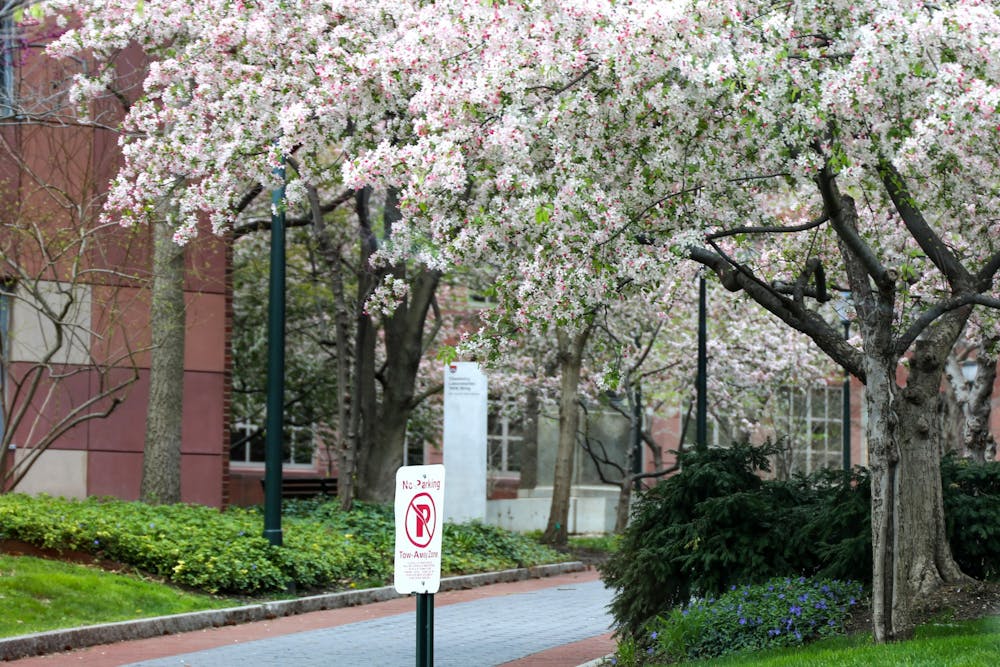
This past week, the University community was notified of updates regarding planning for the spring semester. Seeing the words “return to campus” filled me, and most other Penn students at home this fall, with excitement at the possibility of being in Philadelphia in the spring. However, there is more to consider on the topic than a first glance would suggest.
The email from the Penn administration comes a month and a half after Centers for Disease Control and Prevention (CDC) Director Robert Redfield announced in a Senate hearing that Americans should not expect a COVID-19 vaccine before the summer or early fall of 2021. While the prospect of being on campus after months of Zoom classes and the occasional masked excursion is an exciting one, this news tasks the Penn community with an important imperative: to safeguard the lives of those who call Philadelphia home.
When I first heard the news that the 2020 fall semester would be delivered in an entirely remote setting I, along with most other Penn students, felt a great deal of frustration with the University. Even now, looking at the box of IKEA college move–in staples in the corner of my room, I am reminded of all the excitement I felt a few short months ago. Though I still can’t understand the timeline for how that decision was communicated with students or how related tuition and fee cuts were arrived at, New Student Orientation, albeit virtual, gifted me an alternative outlook.
In learning from some of the world’s greatest bringers-of-change the ideals of civic engagement, a term which has unfortunately become a buzzword of sorts, I had a newfound sense of gratefulness for the decision Penn made regarding the fall semester.
It is no secret that Philadelphia, including West Philadelphia, is home to some of our nation’s most disadvantaged and disenfranchised citizens. It’s important to realize that while the coronavirus is not a life-threatening disease for most Penn students, the same cannot be said for many permanent residents of West Philadelphia.
When Penn had to abruptly send students home in the spring of 2020, the University had some of the highest reported case counts in the nation among all higher education institutions. When you factor in the vast amount of states and countries Penn students hail from, and combine that with Philadelphia’s substantial Black, Latinx, and Indigenous populations (all of which face heightened transmission risks), it becomes clear that this choice was a prudent one.
While the University notification regarding the spring semester uses a confident tone in regards to testing capacity and social-distancing measures, it’s important to consider all of the variability involved in a plan to bring thousands of students back to campus. The largest source of concern is students themselves. While the Campus Compact is an admirable effort to limit risk in the student population, it seems less than adequate when viewed as a safeguard for the residents of West Philadelphia, owing to the blatant violations of the Compact by some students. Students must understand all the risks they pose to vulnerable West Philadelphia communities, and it is the University’s job to further impart the importance of this issue to its students.
As a favor to the mental health of Penn students, and to the well-being of the West Philadelphia community, the University must be absolutely sure of its decision regarding the spring semester. We cannot afford a repeat of the mishap that occurred this summer, nor can we afford to put our community at risk with half-baked measures to protect the public health. We as a university once again have the responsibility to put our ad-nauseam discussions of civic engagement to the test. This spring, we must put the residents of Philadelphia first. It’s the neighborly thing to do.
ALEXANDER EAPEN is a first-year student in the College.
The Daily Pennsylvanian is an independent, student-run newspaper. Please consider making a donation to support the coverage that shapes the University. Your generosity ensures a future of strong journalism at Penn.
Donate



